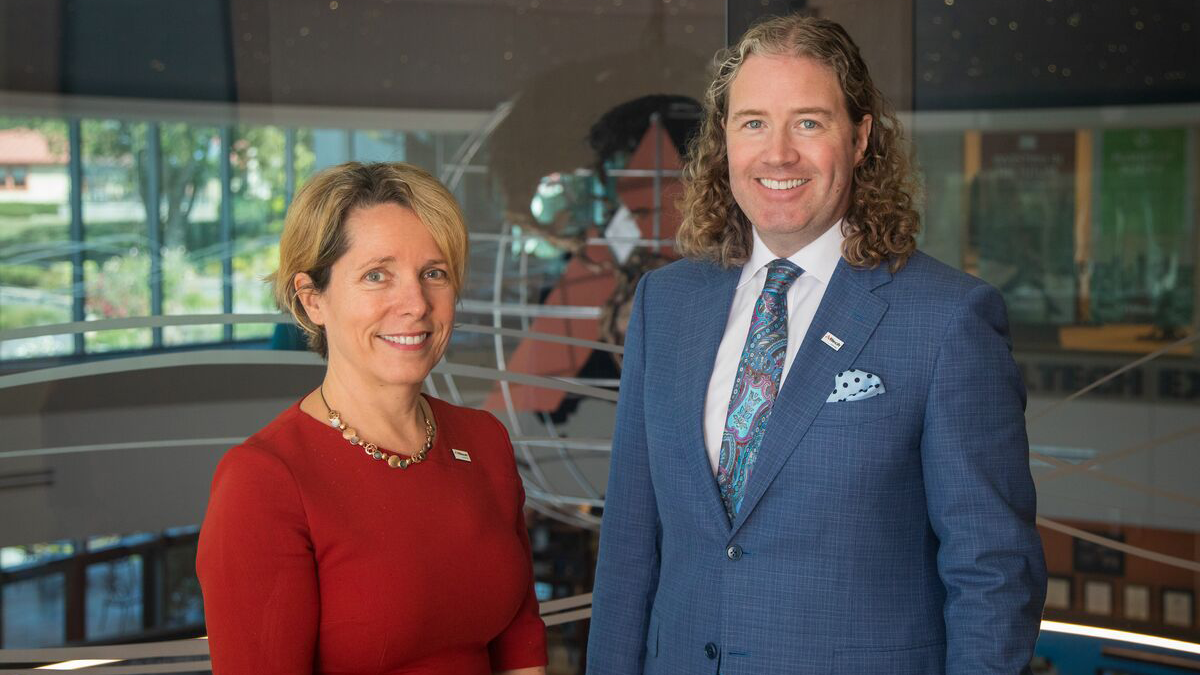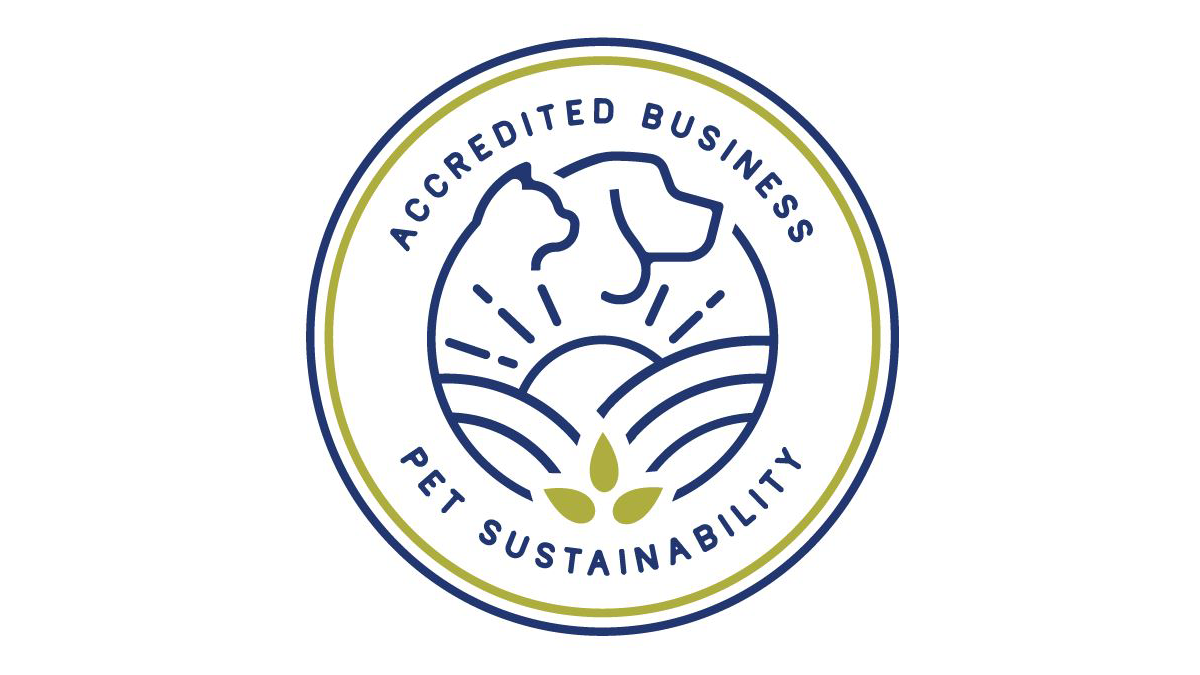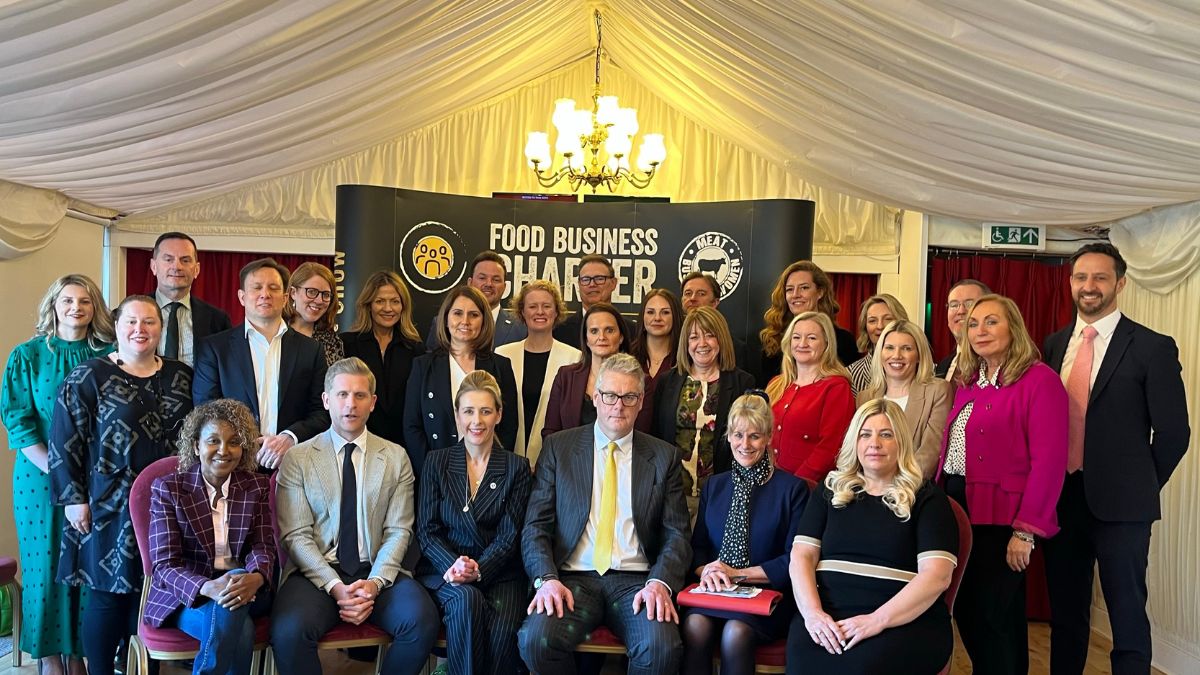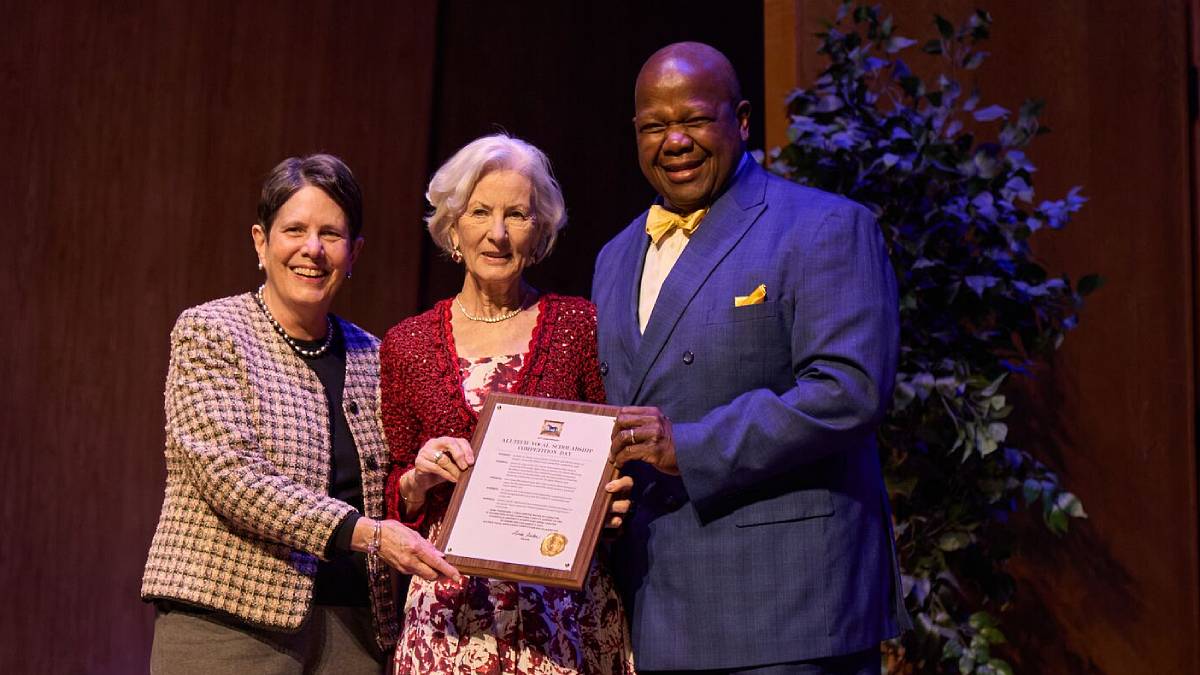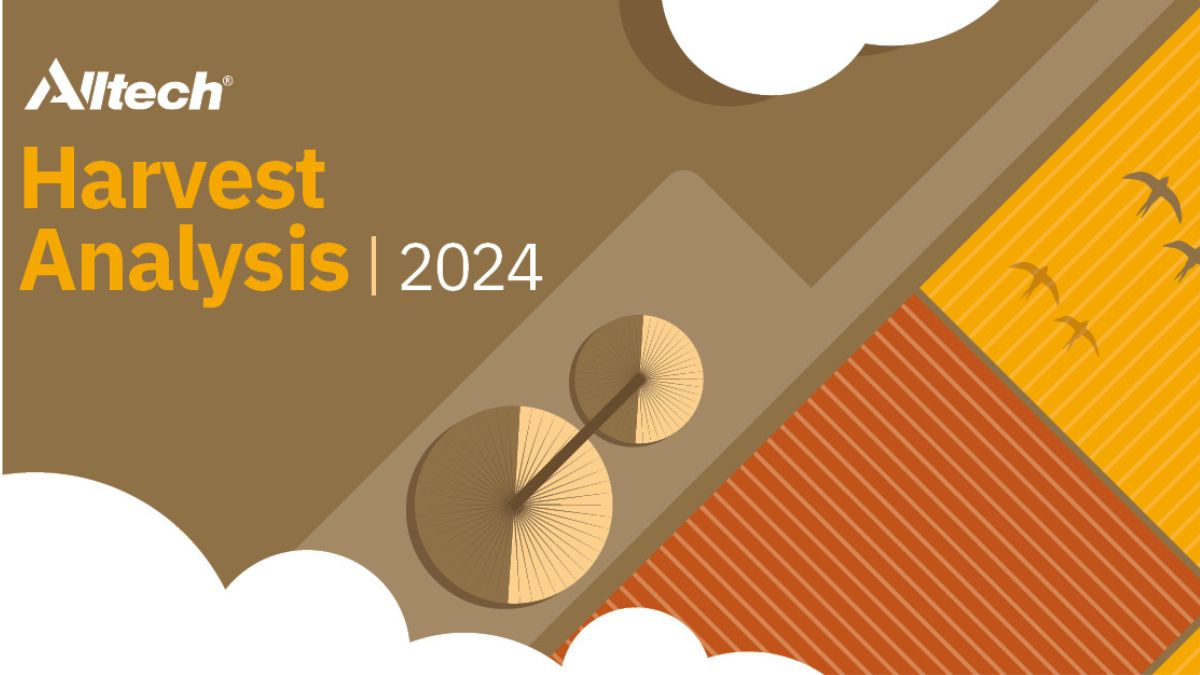Partnership between Alltech and UK has enabled more than 200 students to pursue their musical ambitions; 20th annual event awards more than $700,000 in prizes and scholarships
[LEXINGTON, Kentucky] — For 20 years, a shared passion for music and education has united Alltech and the University of Kentucky in shaping the futures of hundreds of gifted vocalists by providing them an unparalleled opportunity to study at UK and perform with the esteemed UK Opera Theatre program.
The Alltech Vocal Scholarship Competition marked its 20th anniversary on Sunday at the UK Singletary Center for the Arts with 18 finalists taking the stage to compete for more than $700,000 in prizes and scholarships. The competition — one of the largest of its kind in the world — attracts top vocal performers from around the world, helping them overcome financial barriers to pursuing their musical dreams and paving their way to a successful career. It has also played a pivotal role in the rise of the UK Opera Theatre program, now widely regarded as one of the best in the nation.
The milestone event began with a special presentation by Lexington Mayor Linda Gorton, who declared March 2, 2025, as Alltech Vocal Scholarship Competition Day in Lexington.
“More than 200 students have been able to pursue their ambitions in opera, having opportunities to travel the world, perform, teach and inspire others,” said Mayor Gorton. “It is an honor to be here to celebrate the Alltech Vocal Scholarship Competition’s 20th anniversary.”
The proclamation recognized the competition as one of the legacies of Alltech founder Dr. Pearse Lyons, whose love for music and commitment to helping people “do what makes their hearts sing” inspired him to create this unique program with his friend UK Opera Theatre Director Dr. Everett McCorvey. The mayor also acknowledged the ongoing support of Deirdre Lyons, Alltech cofounder and director of corporate image and design, and Dr. Mark Lyons, Alltech president and CEO, who continue to champion the program.
Dr. McCorvey described the scholarship program as a “game-changer for us here at the university.”
“When Dr. Lyons first began talking about starting this competition, he said, ‘I want this to be the best competition in the world,’” Dr. McCorvey recalled. “So, I took a proposal to him, and he said, ‘OK, this is not big enough. Go back to your team and bring something bigger.’ So we did. We created a competition that is the best competition in the world for young singers.”
“UK Opera Theatre is a visionary program that helps singers reach their full potential while bringing art and joy to the community,” said Dr. Mark Lyons. “On this 20th anniversary, we celebrate not only the incredible talent on display but also the spirit of camaraderie and community that defines this competition.”
Making dreams come true for 20 years
Judges selected multiple winners in undergraduate and graduate categories. In addition to cash prizes, winners received scholarships to attend UK, including some full-tuition awards. This year’s competition featured six undergraduate competitors and 12 graduate student competitors.
The winners of the 2025 Alltech Vocal Scholarship Competition were:
Undergraduate student winners
- Pearse and Deirdre Lyons First-Place Undergraduate Award and Scholarship — CoryOn Brooks, Paducah, Kentucky. This prize includes a $10,000 cash prize and a four-year, full-tuition scholarship to pursue a bachelor’s degree in music at UK.
- Bryant’s Rent-All and KPMG Second-Place Undergraduate Award and Scholarship — Destiny Cardell, Louisville, Kentucky. This prize includes a $9,000 cash award and a four-year, full-tuition scholarship to pursue a bachelor’s degree in music at UK.
- Alltech Feed Division Third-Place Undergraduate Award and Scholarship ($8,000 cash prize) — Darian Wright, Louisville, Kentucky.
- Barbara Rouse Kentucky Prize ($5,000 cash prize) — Emory Hampton, Louisville, Kentucky.
- Maestro’s Legacy Encouragement Awards ($1,000 cash prizes) — Lucy Schapman, Edwardsville, Illinois, and Grayson Boehm, Louisville, Kentucky.
Graduate student winners
- Pearse and Deirdre Lyons First-Place Graduate Award and Graduate Assistantship — Christian Abbo, Las Vegas, Nevada. This prize includes a full graduate assistantship to pursue a master’s degree in music or a doctoral degree in musical arts at UK, a one-time stipend of $13,000 from Alltech, and a yearly graduate stipend with UK Opera Theatre.
- Alltech and Stand Energy Second-Place Graduate Award and Graduate Assistantship — Matthew Pearce, Lexington, Kentucky. This prize includes a full graduate assistantship to pursue a master’s degree in music or a doctoral degree in musical arts at UK, a one-time stipend of $12,000 from Alltech and Stand Energy, and a yearly graduate stipend with UK Opera Theatre.
- Pearse Lyons ACE Foundation Third-Place Graduate Award — Emily Wicker, Chaseburg, Wisconsin. This prize includes a one-time stipend of $11,000.
- Encore Excellence Graduate Award — Bizhou Chang, Liaoning, China. This prize includes a one-time stipend of $10,000.
- Gail Robinson Performance Graduate Award ($8,000 cash prize) — Lily Allen, Cleveland, Tennessee.
- Alltech Crop Science Graduate Encouragement Award ($5,000 cash prize) — Lillian Broderick, Northfield, Vermont.
- Maestro’s Legacy Encouragement Graduate Award ($2,000 cash prize) — Collin Stillday, Plymouth, Minnesota.
- Reginald Smith Jr. Opportunity Award ($1,000 cash prize) — Darien Roby, Alexandria, Virginia.
- Opera LEX Victoria Meyers Graduate Award ($1,000 cash prize) — Reagan Hinze, Lincoln, Nebraska.
- Maestro’s Legacy Encouragement Awards ($1,000 cash prize) — Samuel Phillips, Birmingham, Alabama; Andrea Trusty, Ezel, Kentucky; and Austin Morgano, Georgetown, Kentucky.
- American Institute of Musical Studies (AIMS) tuition stipend — Matthew Pearce, Christian Abbo, Lily Allen, Collin Stillday and Bizhou Chang. AIMS, located in Graz, Austria, is the leading summer music program in Europe, a one-of-a-kind experience designed to prepare students for careers as professional musicians.
Finalists were scored based on their voice, technical skill, interpretation and accuracy by five judges:
- Reginald Smith Jr., a 2007 winner of the Alltech Vocal Scholarship Competition and a Grammy and Emmy Award-winning baritone who has been lauded as a passionate performer “whose voice is one of the best baritone sounds to come along in years” by Opera News. His career has included performances with some of the world’s leading opera companies and in concerts worldwide.
- Barbara Lynne Jamison, general director of the Kentucky Opera, who has led a groundbreaking, community-led approach to producing mainstage opera, increasing diversity both onstage and in the audience.
- Audrey Chalt, a director, writer and producer of opera and theatre who currently serves as the artistic programs and new works manager at Cincinnati Opera.
- Dr. Thomas King, a tenor who has sung more than 50 roles in opera, operetta and musicals over the course of his career. King has taught private voice at Austin Peay State University, DePauw University and Indiana University Jacobs School. He also taught at the American Institute of Musical Studies in Graz, Austria, for 25 years and served as its artistic director for seven years before retiring in 2010.
- Julia Noulin-Mérat, an American, French and Canadian producer and designer with more than 25 years of experience who has served as the general director and CEO of Opera Columbus for the past five years.
Since its inception, the Alltech Vocal Scholarship Competition has awarded more than $12 million in UK scholarships and prizes.
In addition to UK Opera Theatre productions, Alltech Vocal Scholars enrich the local community throughout the year with performances at the annual Alltech Celebration of Song, a free holiday concert at Alltech Arena at the Kentucky Horse Park, and the popular summer concert series “It’s a Grand Night for Singing.”
“Alltech has been a wonderful partner for us,” said Dr. McCorvey. “There’s a whole culture at Alltech of creating excellence and helping people to pursue their dreams.”
Learn more about the Alltech Vocal Scholarship Competition and watch the livestream of this year’s competition at alltech.com/vocal.

CoryOn Brooks of Paducah, Kentucky, won the 2025 Pearse and Deirdre Lyons First-Place Undergraduate Award and Scholarship award, which includes a $10,000 cash prize and a four-year, full-tuition scholarship to pursue a bachelor’s degree in music at UK.

Christian Abbo of Las Vegas, Nevada, won the 2025 Pearse and Deirdre Lyons First-Place Graduate Award and Graduate Assistantship, which includes a full graduate assistantship to pursue a master’s degree in music or a doctoral degree in musical arts at UK, a one-time stipend of $13,000 from Alltech, and a yearly graduate stipend with UK Opera Theatre.
